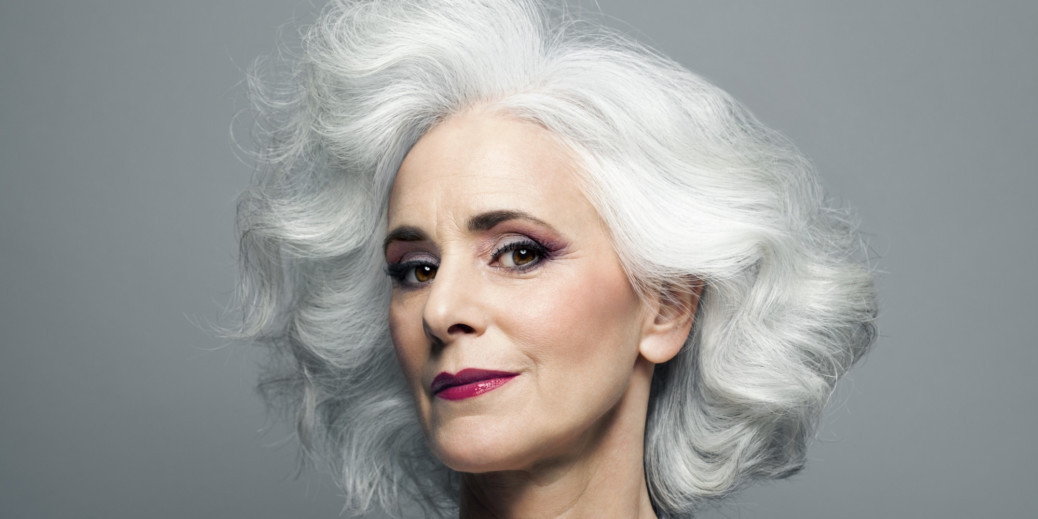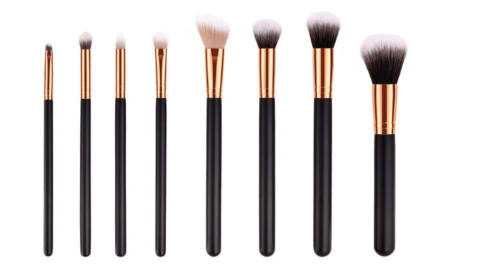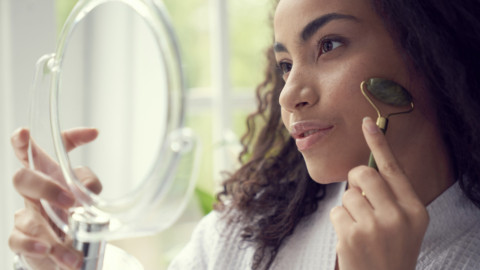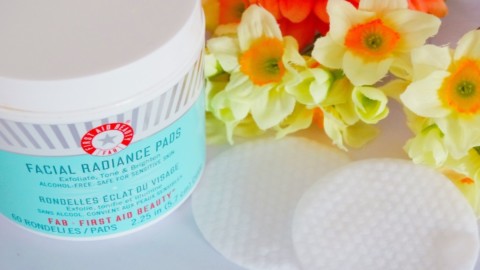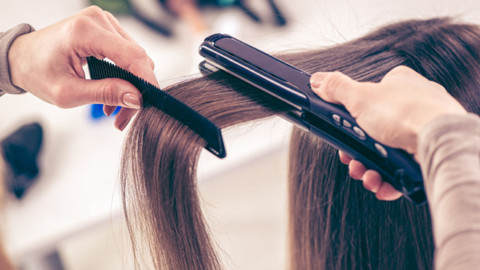In my twenties, I obsessed over my hair. It never looked quite the way I wanted it to. Never straight enough, then when that trend faded, I could never get the perfect wave. My thick mane tangled easily — and still does. When I colored my hair, I could never quite get the tone right. At the hairdresser, I often walked out displeased. My hair was an eternal work in progress. I worried, too, about greying. Because, like wrinkles, I was frequently convinced by beauty mags and the popular media that I needed to be terrified about the signs of aging at a time in my life when I should have been focusing on enjoying myself.
Today, I’m much more at ease with my appearance. I have a simple beauty routine, but it’s one that gives me confidence. I’m more laissez-faire about my hair, and I appreciate its natural texture more than ever, often leaving it to air dry. I still use box dye, but I don’t panic when the color turns out slightly wrong or when my roots are showing. Still, I can’t help but cringe when I spot a white hair.
I have a fervent hope that when my hairs begin turning white en-masse that I’ll be as lucky as my mother whose hair went from blonde to gorgeous platinum. It truly looks like she came from a salon. I’m hopeful that I’ll have the same platinum hue, and sometimes I wish the transformation would hurry along! When we start to go grey depends mainly on genetics, but in some cases, greying can occur prematurely and is a sign that there’s something awry.
Grey Hair and White Hair
Wait. Does hair turn grey, or does it turn white? What’s the difference?
It’s confusing, isn’t it? The reason hair often appears grey as we age is because hair slowly begins to lose its pigment. On folks with dark hair, the mix of white and black (or brown) hairs looks grey. Think of a painter’s palette. Mixing white and black produces grey. The same effect occurs with hair. Blonder folks — like my mother, whom I mentioned above — may have hair that instead appears lighter as white hairs poke through. When hair becomes completely white, it’s because there are no longer hairs on your head with any pigment.
Reasons for Premature Greying
The age at which greying occurs varies considerably, but thinking back to when your parents or other blood relatives first began seeing white in their hair will provide you with a reasonable estimate for when to expect white hairs on your head. Note that people with darker hair will typically notice greying sooner than others because there’s simply more contrast between white and dark hairs. If your hair is beginning to turn grey earlier than you’d expect, here are a few reasons why that might be happening.
Overdoing it With Hair Dye
 You might want to put down the bottle of dye and consider that your monthly habit of coloring your roots may directly contribute to those white hairs you’ve been spying lately. Many hair dye products contain chemicals like hydrogen peroxide that strip the hair of its pigment. Any bleach products are equally problematic in this regard. If you’re concerned about early graying, look for hair dyes without harsh chemicals. But don’t let the possibility of premature greying stop you from achieving your dream hair look!
You might want to put down the bottle of dye and consider that your monthly habit of coloring your roots may directly contribute to those white hairs you’ve been spying lately. Many hair dye products contain chemicals like hydrogen peroxide that strip the hair of its pigment. Any bleach products are equally problematic in this regard. If you’re concerned about early graying, look for hair dyes without harsh chemicals. But don’t let the possibility of premature greying stop you from achieving your dream hair look!
Cigarettes
 We already know that smoking kills. It messes with your hair, too. Certain studies show that smokers are more likely to experience early greying of hair than those who don’t smoke. In fact, smoking increases your chances of greying well before the age of 30. If you needed yet another reason to give up the nasty habit, this is definitely one to consider.
We already know that smoking kills. It messes with your hair, too. Certain studies show that smokers are more likely to experience early greying of hair than those who don’t smoke. In fact, smoking increases your chances of greying well before the age of 30. If you needed yet another reason to give up the nasty habit, this is definitely one to consider.
Vitamin Deficiency
 Poor diet has been linked to a number of conditions, and now it’s time to include premature greying to the list! Don’t be fooled, eating certain foods won’t necessarily reverse your white hair issue, but if you’re noticing a sudden increase that you’re worried about, consider your diet. If your greying is paired with other symptoms, it may be worth talking to your doctor to get your blood tested for nutrient deficiencies. Greying may occur in response to a lack of B-12, vitamin D, and biotin. Some studies show that early loss of pigmentation may be reversed through supplementation, though this is not guaranteed.
Poor diet has been linked to a number of conditions, and now it’s time to include premature greying to the list! Don’t be fooled, eating certain foods won’t necessarily reverse your white hair issue, but if you’re noticing a sudden increase that you’re worried about, consider your diet. If your greying is paired with other symptoms, it may be worth talking to your doctor to get your blood tested for nutrient deficiencies. Greying may occur in response to a lack of B-12, vitamin D, and biotin. Some studies show that early loss of pigmentation may be reversed through supplementation, though this is not guaranteed.
Stress
 This one is tricky. There’s very little evidence that emotional stress has a direct correlation with premature greying. However, there is research that points to physical stress having an effect on the health of hair and subsequent loss of pigmentation. A big surgery, for instance, might cause a greater number of white hairs to crop up. Last year, a study published in the journal PLOS described a study on mice that showed there’s a potential connection between the immune system activating (in response to illness, for example) and a loss of hair pigmentation. Scientists say that the reason for this is that there’s a possible link between the genes that control the immune system and hair color. The reality is, though, that stress isn’t the leading cause of premature greying.
This one is tricky. There’s very little evidence that emotional stress has a direct correlation with premature greying. However, there is research that points to physical stress having an effect on the health of hair and subsequent loss of pigmentation. A big surgery, for instance, might cause a greater number of white hairs to crop up. Last year, a study published in the journal PLOS described a study on mice that showed there’s a potential connection between the immune system activating (in response to illness, for example) and a loss of hair pigmentation. Scientists say that the reason for this is that there’s a possible link between the genes that control the immune system and hair color. The reality is, though, that stress isn’t the leading cause of premature greying.
Disease or Medical Conditions

Hair can also lose its natural pigment in response to medical conditions. Metabolic disorders and thyroid conditions may lead to premature greying in some cases. Diseases which cause autoimmune responses may also potentially cause hair loss and greying.
If you’re concerned about the white hairs you’ve been noticing, don’t jump to conclusions. Speak to your doctor. If greying is sudden and accompanied by other symptoms, there may be something up, but otherwise, white hairs will naturally appear as we grow older. It’s part of the aging process. While we’ve all been conditioned to remove those pesky wiry white hairs immediately, it may be worth considering that they’re perfectly normal. Feel free to dye your hair to hide greys, but if you’re comfortable, think about embracing the change and going with it.

